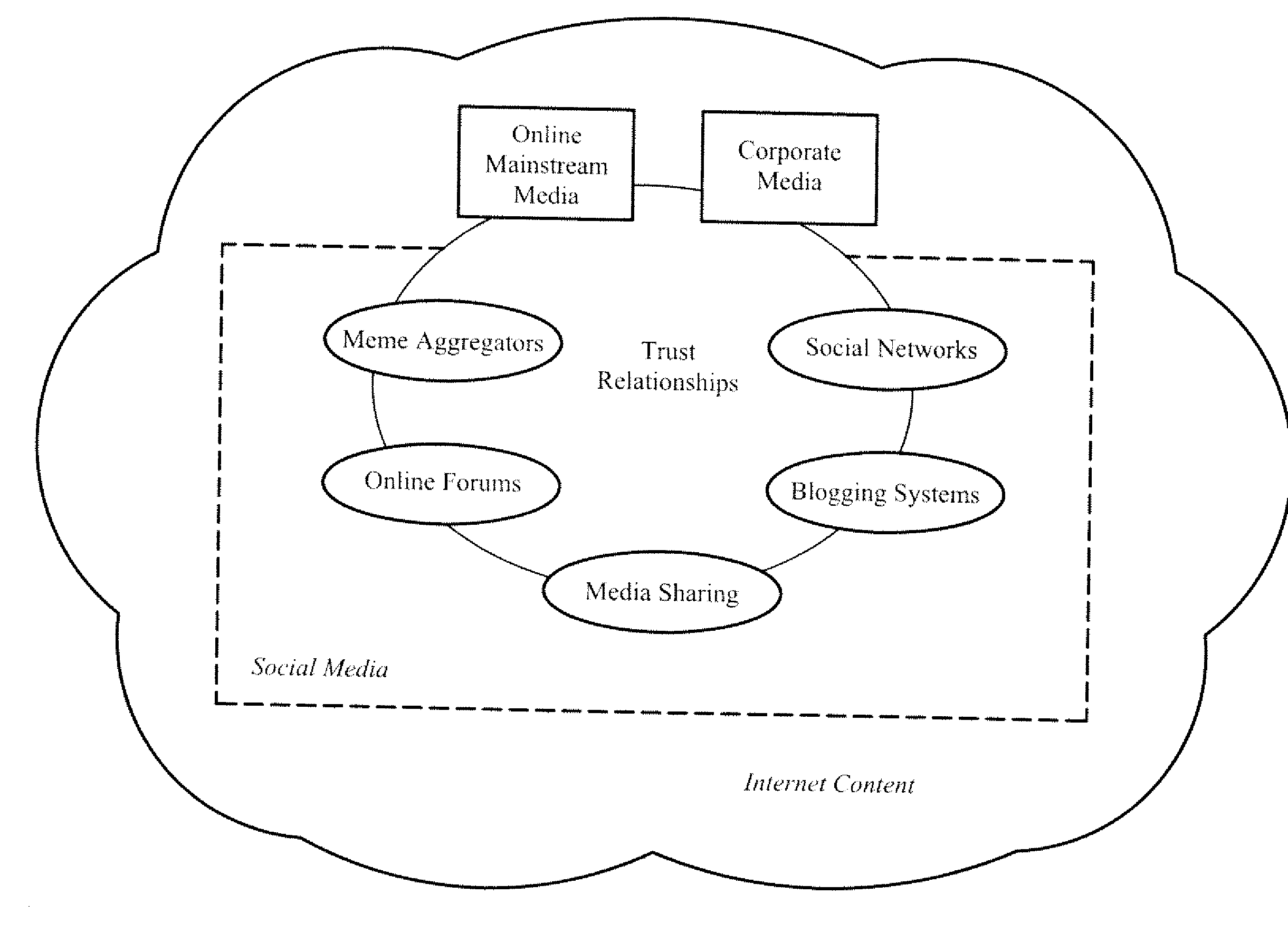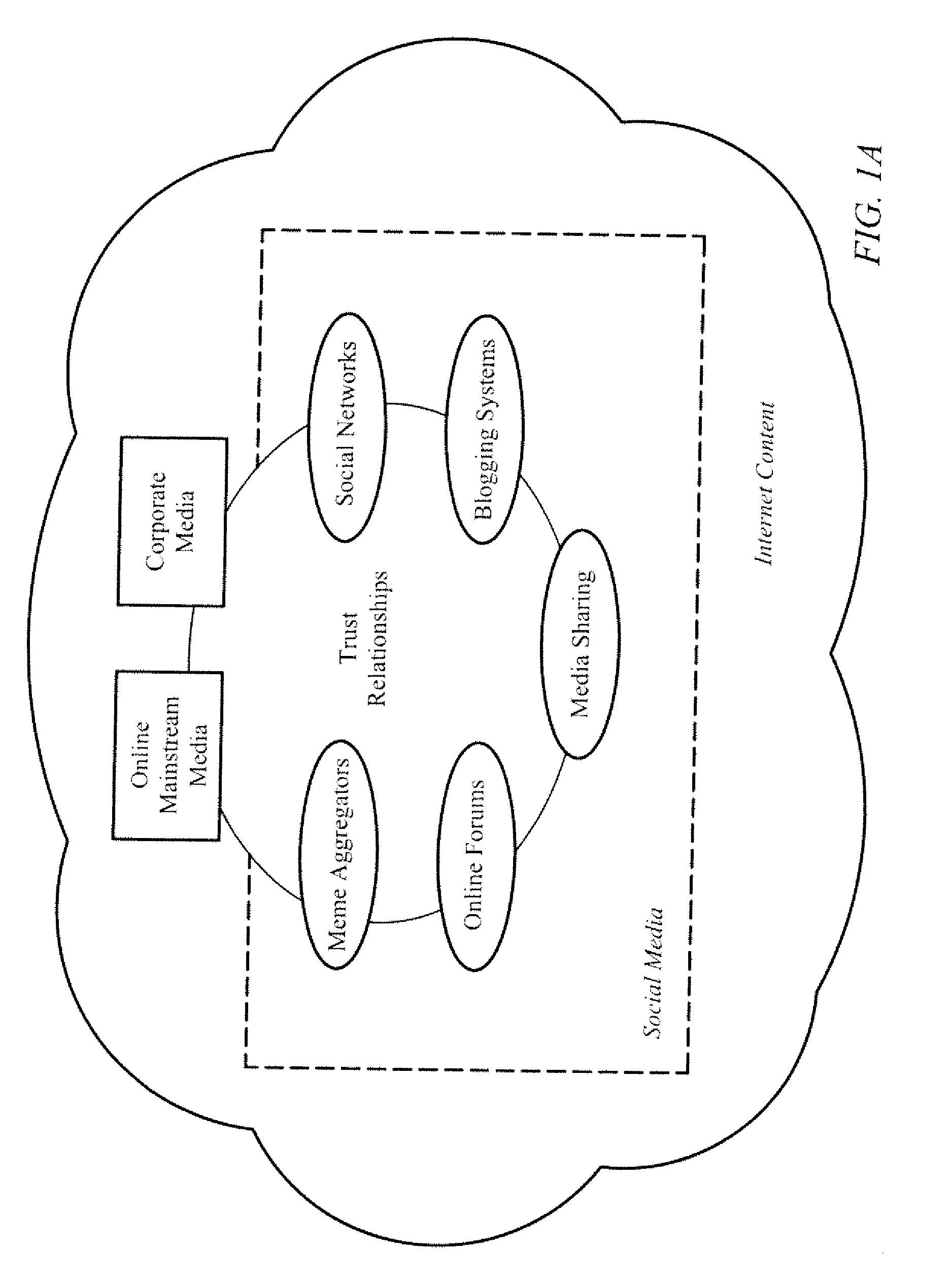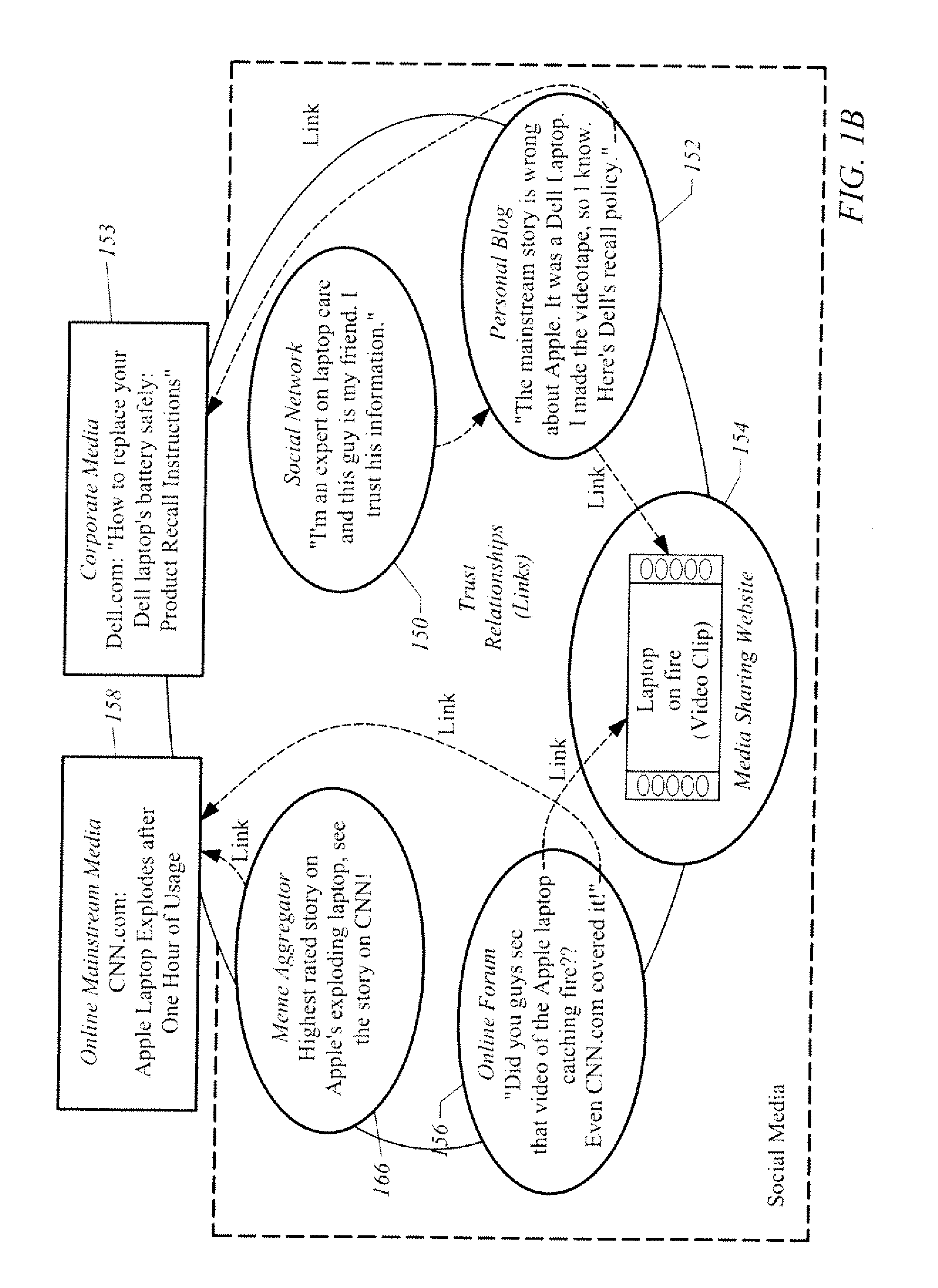System and Method For Advertisement Targeting of Conversations in Social Media
- Summary
- Abstract
- Description
- Claims
- Application Information
AI Technical Summary
Problems solved by technology
Method used
Image
Examples
Embodiment Construction
1. Introduction And Overview
[0051]FIG. 2A is a block diagram illustrating a system in accordance with one embodiment of the present invention, A conversation monitoring: module 210 monitors an online content universe 202 which include social media 204 and which may also include conventional online content. Such as mainstream online media 206 and corporate online media 208. In one implementation, conversation monitoring module utilizes a crawler (not show in FIG. 2A) to monitor the online content universe 202, as described below in more detail. One aspect of the conversation monitoring module 210 is an identification Module 222 to identify a conversation by, for example, providing sub-modules for locating trust relationships 222, removing spam and blogs 226, and eliminating menus in content 224. A conversation processing module 230 includes sub-nodules for permalink Identification 232, publication data determination 236, and content type determination 239. A conversation index 240 is...
PUM
 Login to View More
Login to View More Abstract
Description
Claims
Application Information
 Login to View More
Login to View More - R&D
- Intellectual Property
- Life Sciences
- Materials
- Tech Scout
- Unparalleled Data Quality
- Higher Quality Content
- 60% Fewer Hallucinations
Browse by: Latest US Patents, China's latest patents, Technical Efficacy Thesaurus, Application Domain, Technology Topic, Popular Technical Reports.
© 2025 PatSnap. All rights reserved.Legal|Privacy policy|Modern Slavery Act Transparency Statement|Sitemap|About US| Contact US: help@patsnap.com



